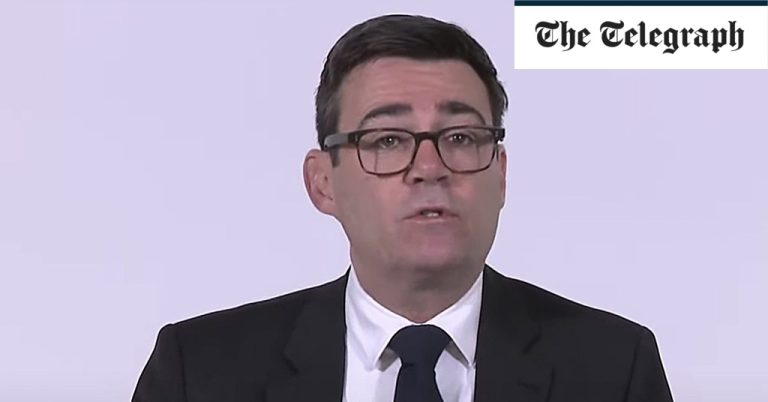Girls were “left at the mercy” of paedophile grooming gangs for years in Rochdale because of failings by senior police and council bosses, a report has said.
The damning 173-page review covers 2004 to 2013 and sets out multiple failed investigations by Greater Manchester Police (GMP) and apparent local authority indifference to the plight of hundreds of youngsters, mainly white girls from poor backgrounds, all identified as potential victims of abuse in Rochdale by Asian men.
Malcolm Newsam CBE, co-author of the report, said: “Successive police operations were launched over this period, but these were insufficiently resourced to match the scale of the widespread organised exploitation within the area.
“Consequently, children were left at risk and many of their abusers to this day have not been apprehended.”
The report identifies 96 men still deemed a potential risk to children, but this is “only a proportion” of the numbers involved in the abuse.
The Rochdale report follows reports by the same authors on grooming in Manchester and Oldham, which found authorities had again failed children leaving them in the clutches of paedophile gangs.
Mr Newsam, a renowned childcare expert, authored the report with Gary Ridgeway, a former detective superintendent, following allegations by whistleblowers Sara Rowbotham and Maggie Oliver in a BBC TV documentary The Betrayed Girls, which aired in 2017.
Mayor of Greater Manchester Andy Burnham commissioned the authors to look at the issues highlighted by the women in the documentary.
Speaking after the report was released,Mr Burnham said: “It is only by facing up fully and unflinchingly to what happened that we can be sure of bringing the whole system culture change needed when it comes to protecting children from abuse.”
He continued: “We are sorry that you were so badly failed by the system that should have protected you.
The report said Ms Rowbotham, co-ordinator of the Crisis Intervention Team set up to support young people in Rochdale, and former GMP detective Maggie Oliver, who resigned from the force in disgust, were “lone voices” who had flagged the clear evidence of “prolific serial rape of countless children in Rochdale.”
The report states there was “compelling evidence” of widespread, organised sexual abuse of children in Rochdale from as early as 2004 onwards, citing multiple reports of the involvement of groups of Asian men.
But children’s unwillingness to make a formal complaint was repeatedly used as an excuse for not investigating.
In 2007, the Crisis Intervention Team led by Ms Rowbotham alerted GMP and Rochdale Council to the presence of an organised crime group involved.
GMP identified the ring-leaders, described as “prolific career criminals”, but did not investigate further because children were too frightened to assist.
The report said this was a “serious failure” to protect the children, ignoring the coercion and control the groomers had over their victims and families, who were sometimes threatened or subjected to violence or had their homes attacked.
Another police investigation into two takeaway shops in Rochdale, involving 30 adult male suspects, was also aborted prematurely because police bosses failed to resource it and the Crown Prosecution Service (CPS) deemed the main child victim an unreliable witness.
Three years later, in January 2010, the specialist multi-agency Sunrise Team was set up in Rochdale where a child told a social worker of the widescale abuse of children by up to 60 men.
One police report said: “What is clearly emerging is an organised industry where vulnerable young children are being targeted for sexual abuse…”
The detective inspector asked for more staff to investigate but police bosses denied the request.
The report states: “Once more, children were left at the mercy of their abusers because of an inadequate response by GMP and children’s social care to the serious exploitation of vulnerable children.”
In December 2010, more than two years after first being told of abuse centred on two takeaway restaurants, GMP finally acted, launching Operation Span which led to the conviction in May 2012 of nine men in a high-profile court case attracting far-right demonstrators.
The trial heard girls as young as 12 were plied with alcohol and drugs and gang raped in rooms above takeaway shops and ferried to different flats in taxis where cash was paid to use the girls.
But while the force hailed Operation Span as “a fantastic result for British justice”, the report states the police operation failed to address numerous other crimes and ignored children’s allegations leaving their abusers off the hook, as alleged by both Ms Oliver and Ms Rowbotham.
GMP and Rochdale Council had presented the court convictions as having “resolved” grooming in the town, but in reality it had “only scraped the surface” the report said.
And while the “public face of GMP” reassured the public it was a police priority to pursue further child groomers this was “far from the case on the ground” the report said.
GMP have since launched further investigations, which have so far resulted in the conviction of 42 men involved in the abuse of 13 children.
The report concludes the scale of abuse in Rochdale was known about by senior and middle managers in the police and children’s social care, but the problem was not given “sufficient priority”.
“We regard this as a lamentable strategic failure by senior leaders in GMP and Rochdale Council,” the report continues. It said the failure to prioritise, detect, disrupt or prosecute “should firmly be laid at the door of the senior officers in GMP throughout this period.”
Sir Peter Fahy was the chief constable of GMP between 2008 and 2015. He was knighted in the 2012 Birthday Honours ‘for services to policing’ and made an honorary professor of criminal justice at the University of Manchester on his retirement.
Maggie Oliver has since founded The Maggie Oliver Foundation, a charity supporting adult survivors of childhood sexual abuse.
